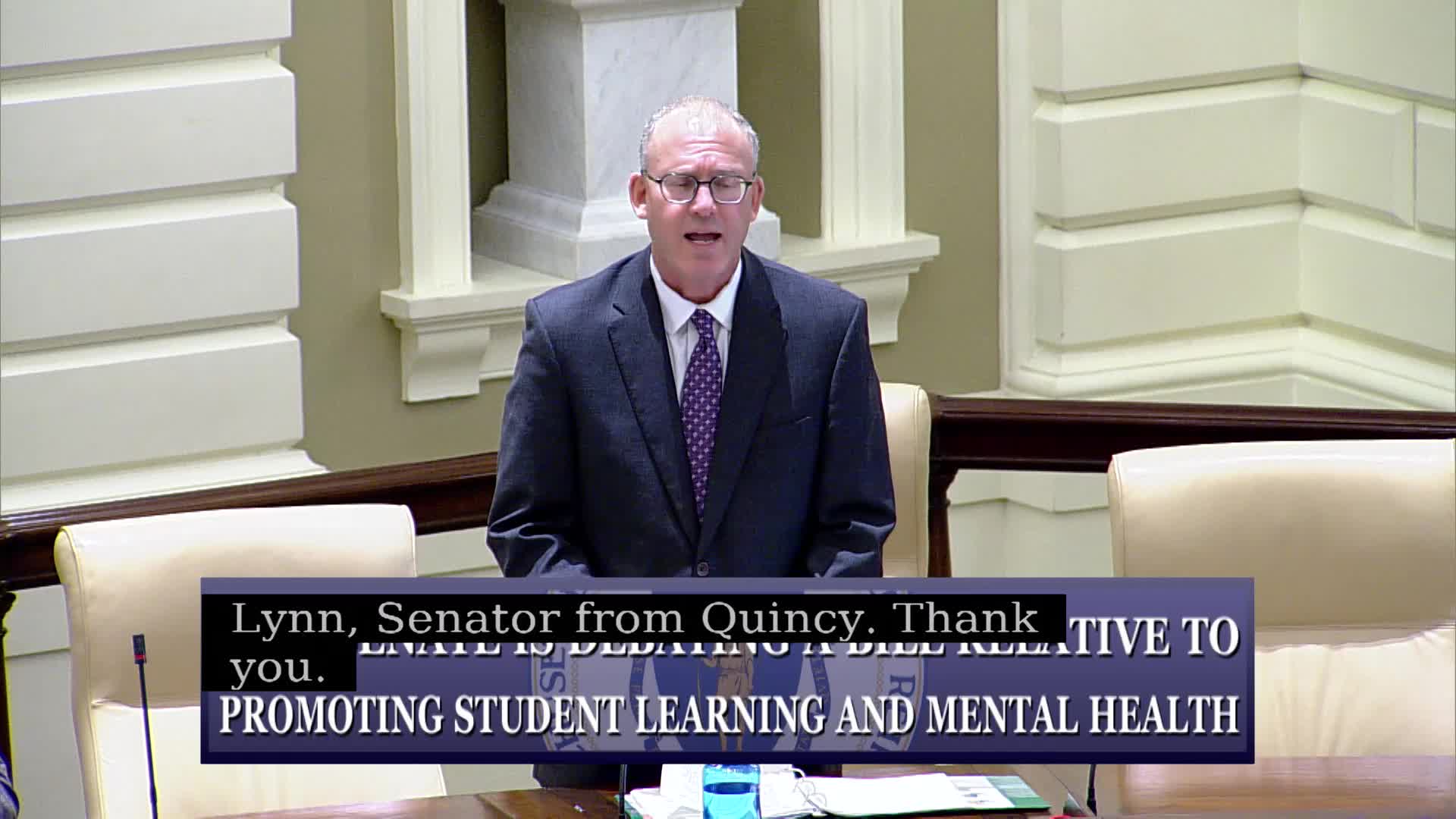Massachusetts Senate Advances Bipartisan Bill to Ban Student Cell Phones in Schools
July 31, 2025 | 2025 Legislature MA, Massachusetts
This article was created by AI summarizing key points discussed. AI makes mistakes, so for full details and context, please refer to the video of the full meeting. Please report any errors so we can fix them. Report an error »

The Massachusetts Senate convened on July 31, 2025, to discuss a significant legislative proposal aimed at addressing cell phone use in public schools. A bipartisan group of senators has introduced several bills focused on limiting students' access to personal electronic devices during school hours, a move that has garnered widespread support from educators and stakeholders.
The proposed legislation seeks to implement a "bell to bell" policy, which would restrict cell phone use from the start of the school day until the final bell. This comprehensive approach aims to enhance academic performance, improve social skills, address mental health concerns, and bolster school safety. Research cited during the session indicates that students who do not use cell phones in class perform better academically, with one study showing a 1.5 letter grade improvement in test scores.
Senators highlighted the negative impact of cell phone distractions on students' learning and social interactions. They noted that schools with existing phone bans have reported reductions in bullying and improved student relationships. Additionally, the legislation aims to tackle the mental health crisis exacerbated by excessive phone use, linking it to increased anxiety and depression among students.
The bill also addresses safety concerns, suggesting that cell phones can distract students during emergencies, potentially hindering their ability to follow instructions from school staff. Furthermore, it aims to improve job satisfaction among teachers, who report a more meaningful work experience in environments where cell phone use is restricted.
The proposed law would allow exceptions for students with disabilities, medical needs, or those participating in educational opportunities off-campus. The Department of Elementary and Secondary Education (DESE) will provide guidance and a model policy to assist school districts in implementing these changes, which are expected to take effect for the 2026-2027 school year.
Support for the legislation is strong, with approximately 80% of Massachusetts school districts already having some form of cell phone policy in place. The session underscored the urgency of addressing this issue, as many states across the country have already enacted similar measures. The Senate's commitment to this legislation reflects a growing recognition of the need to create a focused and safe learning environment for students.
The proposed legislation seeks to implement a "bell to bell" policy, which would restrict cell phone use from the start of the school day until the final bell. This comprehensive approach aims to enhance academic performance, improve social skills, address mental health concerns, and bolster school safety. Research cited during the session indicates that students who do not use cell phones in class perform better academically, with one study showing a 1.5 letter grade improvement in test scores.
Senators highlighted the negative impact of cell phone distractions on students' learning and social interactions. They noted that schools with existing phone bans have reported reductions in bullying and improved student relationships. Additionally, the legislation aims to tackle the mental health crisis exacerbated by excessive phone use, linking it to increased anxiety and depression among students.
The bill also addresses safety concerns, suggesting that cell phones can distract students during emergencies, potentially hindering their ability to follow instructions from school staff. Furthermore, it aims to improve job satisfaction among teachers, who report a more meaningful work experience in environments where cell phone use is restricted.
The proposed law would allow exceptions for students with disabilities, medical needs, or those participating in educational opportunities off-campus. The Department of Elementary and Secondary Education (DESE) will provide guidance and a model policy to assist school districts in implementing these changes, which are expected to take effect for the 2026-2027 school year.
Support for the legislation is strong, with approximately 80% of Massachusetts school districts already having some form of cell phone policy in place. The session underscored the urgency of addressing this issue, as many states across the country have already enacted similar measures. The Senate's commitment to this legislation reflects a growing recognition of the need to create a focused and safe learning environment for students.
View full meeting
This article is based on a recent meeting—watch the full video and explore the complete transcript for deeper insights into the discussion.
View full meeting
